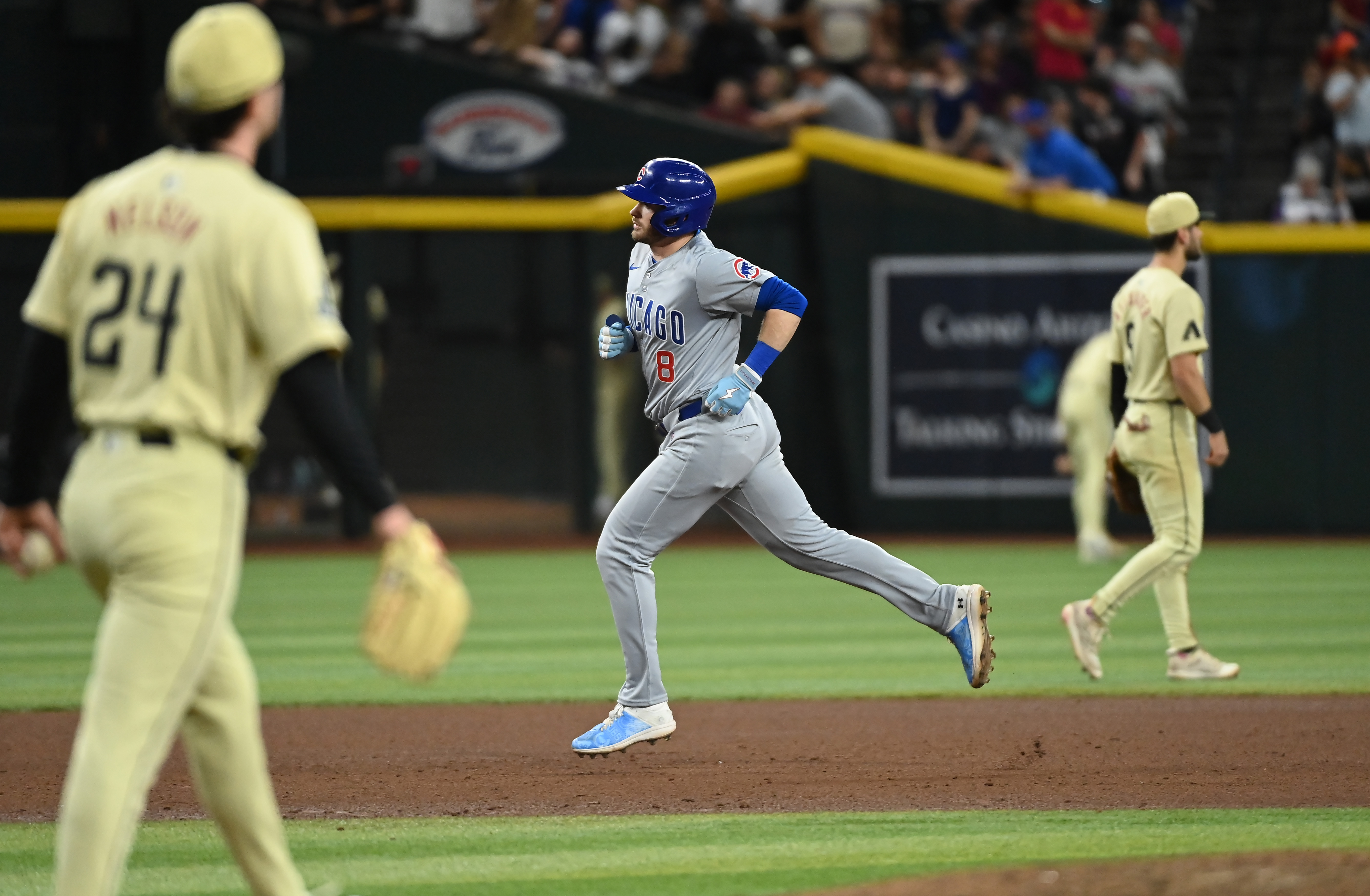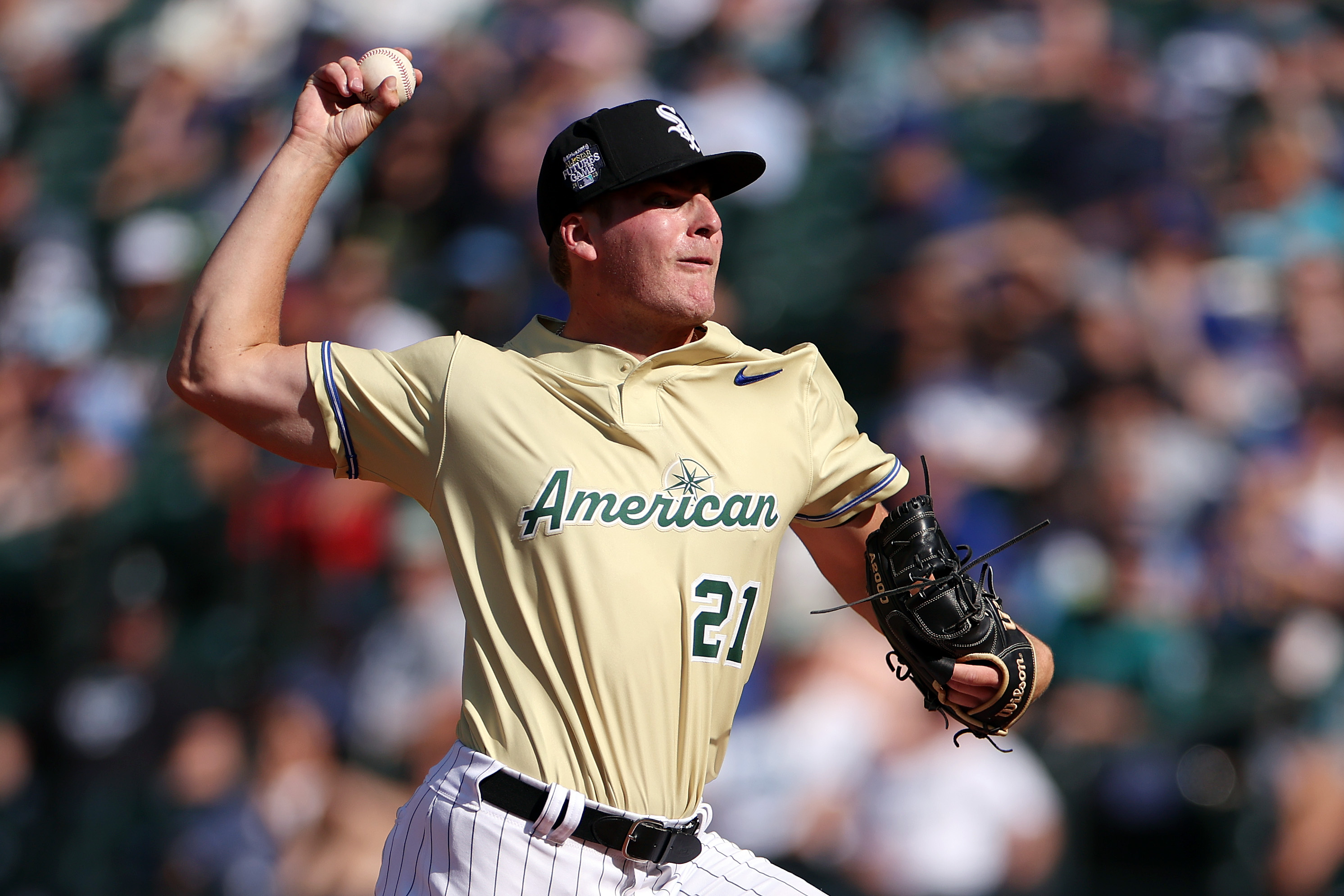Tom Ricketts met with the media on Monday morning to give his usual spring State of the Cubs press conference, and the state of the Cubs is … sorta the same? The Cubs look almost identical to the 84-win, third place team of 2019, but Ricketts’ expectations are far above that.
“I think we have the best team in our division,” the Cubs’ owner said. “I think we have a really dynamic, exciting new manager. I think the players are going to play very, very hard for David Ross. Barring some kind of crazy injuries, I think we should win our division and get back in the playoffs.”
Considering there’s not a whole lot of on-field news to discuss, much of the 20-minute press conference was focused on the team’s finances, their (lack of) headway towards a television deal with Comcast, and what to expect as teams ramp up for the oncoming round of CBA negotiations. Ricketts talked at length about the club’s perceived battles – or lack thereof, he claims – with baseball’s Competitive Balance Tax (CBT).
“I think the CBT is a factor that every large market GM has to put into their calculus when they create their teams,” Ricketts said. “I don’t know how much fans know, but it’s not just a financial penalty. It’s a financial penalty that grows over time, for a number of years you’re above the threshold. And then it gets into a player penalty, which you have to be careful to avoid. So like I said, it’s a factor – I don’t think it’s a defining factor – but it’s definitely a factor that every team has to deal with, at least every large market team.”
Ricketts mentioned that some of this offseason’s planned budget was fronted when the Cubs signed closer Craig Kimbrel to a three-year, $43 million deal towards the end of last summer. He was also adamant that payrolls don’t correlate directly to winning, which is certainly not unfair to claim but also not entirely accurate. He pointed to the Cubs’ baseball budget in 2019, which was, according to him, the highest in the league as to say that the team wasn’t exactly sitting on their hands. While the front office’s inactivity surprised many of the Cubs’ players, Ricketts shot down the idea that something needed to happen for the sake of something happening.
“I’m not disappointed,” he said. “The fact is that we have a great team, we have guys that are proven winners and verteran players. We have the talent to win our division and go deep into the playoffs. So that’s a good starting place. In terms of big changes, it’s hard. You guys follow the game, it’s not like there’s a lot of player for player swaps anymore. Trades don’t happen like they used to.”
And while many view the Red Sox-Dodgers player swap that took place literally last week as a concerning sign of baseball’s current economic market heading into the next round of CBA discussions, Ricketts chose not to comment on what he thinks the owners are going to try and bargain for. Instead, he left the door open for activity – even if it means swallowing the rather costly CBT pill. The Cubs were over the CBT last year, and are open to the notion of a second-straight violation if it means making the right move. Penalties for third-time offenders are particularly harsh, though, and Ricketts conceded that it’s that point when spending begins to give ownership pause.
MLB
“Obviously paying large taxes on CBT is really inefficient and not a great use of team resources, so if there’s a way to put a great team on the field and not pay that, then they will,” he said. “But I leave it up to Theo and Jed.
“Like I said, the CBT thresholds are a piece of the puzzle. They’re something that we’re always mindful of, but they won’t define the situation and they won’t determine the actual player moves.”
Click here to download the new MyTeams App by NBC Sports! Receive comprehensive coverage of the Chicago

